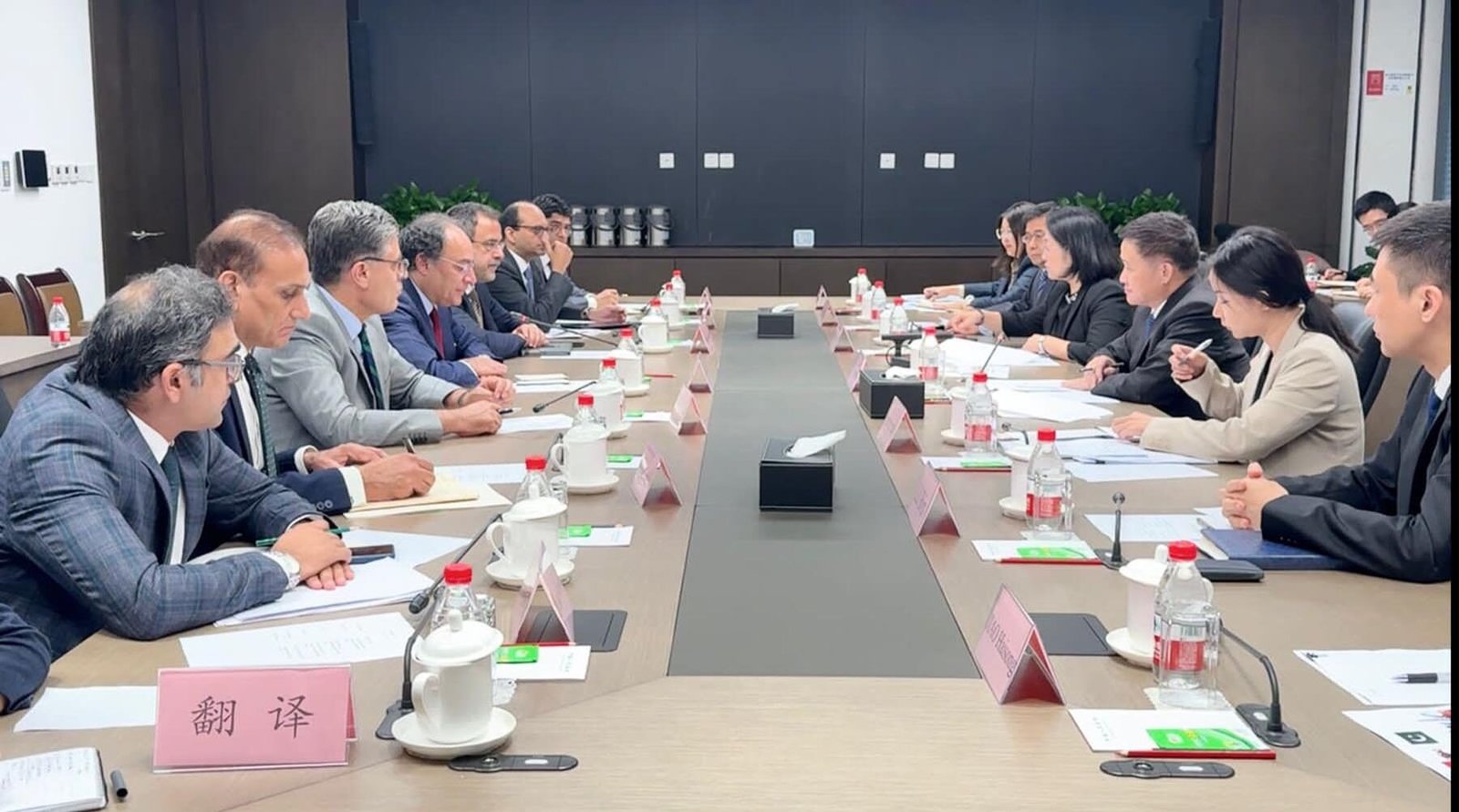
Pakistan’s Economic Reforms and Energy Initiatives: 2024 Meetings with Chinese Officials
ISLAMABAD: In a significant move towards economic stability and growth, Federal Minister for Finance and Revenue, Senator Muhammad Aurangzeb, held crucial meetings with top officials from Chinese institutions. These discussions centered on Pakistan’s reform agenda and its engagement with the International Monetary Fund (IMF).
During the meetings, Senator Aurangzeb, accompanied by Minister for Power Sardar Awais Ahmad Khan Leghari, engaged with Pan Gongsheng, Governor of the People’s Bank of China (PBoC), and Ren Jingong, Vice Administrator of the National Energy Administration (NEA). These discussions underscored the pivotal reforms and strategies that Pakistan is implementing to stabilize its economy.
Economic Reforms and IMF Engagement
Senator Aurangzeb briefed the Chinese officials on Pakistan’s comprehensive reform agenda, emphasizing the government’s commitment to achieving long-term economic stability. The discussions highlighted the critical role of stabilizing the exchange rate and bolstering foreign exchange reserves as foundational elements of the economic recovery plan. Both parties concurred that these reforms are essential for fostering sustainable economic growth.
Launch of Panda Bonds
One of the key topics discussed was Pakistan’s plan to launch Panda Bonds. Senator Aurangzeb provided an update on the steps taken thus far and sought the cooperation of Chinese institutional investors in the capital market. He encouraged these investors to take advantage of Pakistan’s pro-business policies under the new government. The launch of Panda Bonds is seen as a strategic move to attract foreign investment and strengthen financial ties with China.
Strengthening B2B Cooperation under CPEC
The meeting also focused on the China-Pakistan Economic Corridor (CPEC) and its next phase, which aims to strengthen business-to-business (B2B) cooperation. The emphasis on private sector involvement is expected to play a central role in driving development and economic growth. This approach marks a shift towards enhancing the role of private enterprises in CPEC projects, fostering a more dynamic and resilient economic partnership.
Energy Reforms and Efficiency Improvements
In the meeting with Ren Jingong, Vice Administrator of NEA, Minister for Power Sardar Awais Ahmad Khan Leghari reiterated the government’s commitment to introducing energy reforms. These reforms are aimed at enhancing the efficiency of the power sector by addressing systemic issues and reducing transmission losses. Minister Leghari expressed his appreciation for NEA’s support, particularly for signing the Memorandum of Understanding (MoU) focused on improving governance in the power sector. He also expressed his determination to fast-track the implementation of this agreement to achieve tangible results.
Strategic Cooperation with China
These high-level meetings underscore the strategic importance of Pakistan’s cooperation with China in achieving its economic and energy goals. The discussions highlighted mutual interests and the potential for further strengthening bilateral relations through targeted reforms and collaborative projects. The engagement with Chinese financial and energy institutions is a testament to Pakistan’s proactive approach in seeking international support and expertise to overcome economic challenges and achieve sustainable growth.
Future Prospects
The meetings with Chinese officials reflect Pakistan’s proactive efforts to stabilize its economy and enhance its energy sector. By focusing on strategic reforms and seeking international cooperation, Pakistan aims to create a more resilient and sustainable economic environment. The successful implementation of these initiatives is expected to pave the way for long-term growth and prosperity, benefiting both countries and contributing to regional stability.







